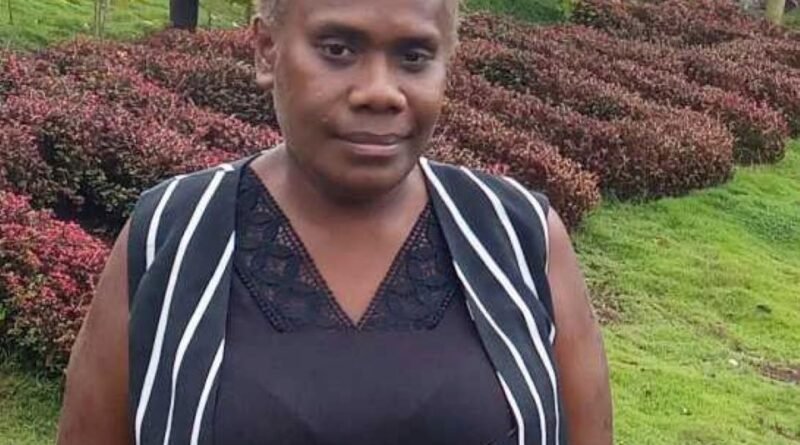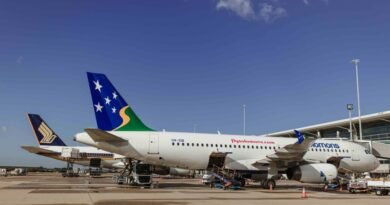Jacinta Koli Vagha’s Journey with Hotomai Cultural Village
BY CHRIS ALEX
LOCATED between Belaha and Tenaru Falls in Central Guadalcanal lies the Hotomai Cultural Village, an intense testament to the enduring traditions and vibrant heritage of the Solomon Islands. This cultural haven, founded by the visionary Jacinta Koli Vagha, serves as a living museum of the customs and practices that define the Guadalcanal Island’s rich tapestry.
If you’re a visitor to some of the villages within the Birao speaking areas in Guadalcanal- Solomon Islands, the first word you’ll probably hear is “Hotomai”. This word may imply “welcome” in English, but has a strong, powerful and affectionate effect especially if you understand it. You feel welcomed. You feel special. You feel more than at home.

THE DREAM OF HOTOMAI: JACINTA KOLI VAGHA’S VISION
Jacinta’s journey to establish the Hotomai Cultural Village is a story of resilience and dedication. Born and raised in the heart of Tetekanji and Birao wards in East Guadalcanal, she was immersed in the essence of her cultural heritage from an early age.
“I’ve always sheltered the dream of creating such a place,” Jacinta told Tourism Media, “but obstacles like financial limits hindered our progress for years.”
Despite these challenges, including resistance from her own village, Jacinta remained undeterred.

The turning point came during Jacinta’s time at Ming Chuan University of Taiwan in 2011 studying Travel and Tourism, where she encountered a similar cultural hub—the Taiwan Aboriginal Cultural Village. This experience sparked a deep inspiration within her.
“Seeing their celebration of culture resonated with me. I realized we had so much to share from our own village,” Jacinta recalls. Upon her return, she laid the groundwork for Hotomai Cultural Village
“I raised the idea of building the cultural village in East Guadalcanal, Tetekanji my village, but the idea was not supported by many,” she told Tourism Media.
It was with the unwavering support of her father, who showed her the land up in Belaha and Tenaru—used as a settlement by people who speak Birao dialect to stopover before reaching Honiara City—that her dream found its home.
A COMMUNITY’S RALLYING SPIRIT
The pivotal moment arrived in 2023, when Jacinta, alongside her brother Jessey Koli, rallied their community to bring their vision to life.
“We initiated discussions, gathered local backing, and commenced construction in May 2023,” she recounts.
Their collective efforts culminated in the emergence of Hotomai Cultural Village, a testament to communal spirit and cultural pride.

Constructed from indigenous materials, the village features three traditional houses: a feasting house, a tabu house, and a residential dwelling. These structures are more than mere buildings; they are repositories of ancestral wisdom and living classrooms for cultural preservation.
“We aim to provide employment opportunities for locals and to preserve our ancestral customs through hands-on learning experiences, we targeting those who want to experience culture” Jacinta explains.
CELEBRATING MILESTONES AND CULTURAL SHOWCASES
October 2023 marked a significant milestone for Hotomai Cultural Village as it hosted representatives from the Ministry of Culture and Tourism, Tourism Solomon, and prominent inbound tourism operators. “We showcased not just our physical structures but also the soul of our culture,” Jacinta emphasizes.
Visitors to the village are treated to a rich tapestry of activities: weaving, traditional cooking, planting, and harvesting of crops like cassava and taro. Each house within the village has its own unique story, shared orally with visitors, enriching their understanding of the local heritage. The village also resounds with traditional chants performed by young boys and girls, bringing the cultural experience to life.

As an initiator, Jacinta takes pride in seeing the active participation of everyone in the village—men, women, young boys, and girls—in hosting events.
“That really shows that my people are backing me up in boosting this idea and expanding this place to the next level. Tourism is best; it really suits village life,” she says with a smile.
A VISION FOR THE FUTURE
Looking ahead, Hotomai Cultural Village envisions expansion beyond its current footprint. Plans are afoot to establish a research center dedicated to Birao culture and to augment accommodations for visitors seeking a true cultural experience. “We aspire to offer a holistic immersion into our way of life,” Jacinta affirms.

Despite the drive for expansion and sharing, Jacinta acknowledges the sanctity of certain practices not meant for public display. “Respect for our cultural sensitivities is paramount,” she says. “While we open our doors to sharing, some aspects remain sacred and revered within our community.”
BRIDGING PAST AND PRESENT
Ultimately, Hotomai Cultural Village stands as a bridge between past and present, fostering mutual understanding and appreciation among diverse cultures.
“Through education and empathy, we pave the path towards a more harmonious world,” Jacinta concludes. “For in understanding each other, we embrace the beauty of our shared humanity.”

Currently, Jacinta serves as a Culture and Tourism Officer for Guadalcanal Province. She is passionate about boosting the tourism industry in her region and encourages others to discover their potential.
“Everything is possible,” she says. “Work on your dreams to achieve better for your people and your country.”



